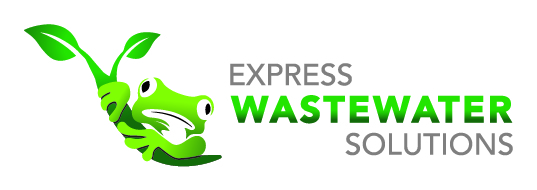Are bath bombs safe for septic tanks?
You've likely seen bath bombs advertised in various stores across the country to help enhance your bath time - whether it be a calming lavender bath after a long day, rainbow-coloured bath water to make bath time more exciting for your kids or a Santa-themed bath bomb for the festive season.

But have you ever considered if bath bombs are good for the plumbing in your home, especially if you have a septic tank? It's definitely something that people overlook, however, bath bombs can cause problems after your bath water drains down the sink. That is why we have put some information to help you out - if you would like to know more, give Express Wastewater a call at 1300 770 594 and we can help.
What are bath bombs?
Bath bombs are a collection of ingredients that have been packed together into a hard 'package'. Bath bombs can come in all shapes, sizes and colours, and can contain a range of ingredients including:
- Essential oils
- Sodium bicarbonate
- Dyes
- Citric acid
- Solids such as glitter or flower petals
Bath bombs are designed to generally create a pleasant scent, colour the water in a bath and/or add bubbles. They do not react when dry but, when submerged in water, the sodium bicarbonate reacts with the citric acid and create a 'bomb' effect in the water.
Are bath bombs safe for septic tanks?
Generally, the answer is no. Not all ingredients that are contained in many bath bombs are safe for septic tanks and can cause issues in a variety of ways.

What makes bath bombs a problem for septic tanks?
So, why aren't bath bombs safe for septic tanks? There are a few things that can cause problems:
- Salts: Some bath bombs contain salts that do not completely dissolve, which can result in blockages and chunks that things like hair can attach to (and then cause a blockage). The salts can also damage the bacteria in your septic system if they are present in high amounts.
- Fats: Some bath bombs contain either fats and/or butter, which can be tricky due to their varying melting points. This means that if they cool too quickly as they travel through the plumbing, they can solidify and cause a blockage. For example, cocoa butter melts at around 36 degrees Celsius, and the average bath temperature is around 40.5 degrees Celsius. This is great when you're in the bath but, as it nears the end of your soak, you may find that the water temperature has dipped to 37 or even 36 degrees before you even get out. This means that the water may be below melting point before the bath bomb ingredients enter the pipes... which can be a problem! Many bath bombs contain very little butter, however, it is super important to check the ingredient list just in case.
- Oils: Oils are similar to fats when it comes to bath bombs, however, oils are generally liquid at room temperature. This means that they will (hopefully) make their way through the plumbing and into your septic tank, where they will float to the top and accumulate in the scum layer.
- Solids: When we say solids, we mean additions such as glitter, flower petals and confetti. These things do not dissolve, which can cause blockages and issues in the pipes and your septic tank. The natural products that are contained in a bath bomb can contribute to your system's oxygen demand, whereas the synthetic components can easily add up in your septic tank, which can block effluent filters and cause damage to downstream components. If possible, avoid bath bombs with solids or place a strainer over your drain to catch all the solids (pantyhose / tights work great!).
*Remember, not all bath bombs contain the above ingredients. If you would like to continue using bath bombs and your home has a septic system, speak to a qualified septic system professional for assistance as to what to look out for next time you wish to buy a bath bomb!

Your local septic tank specialists
If you would like some more information regarding septic tanks, and septic system maintenance, give Express Wastewater a call at 1300 722 517 and we would be happy to assist!
Resources
Onsite Installer - Another Product That Could Harm Septic Systems